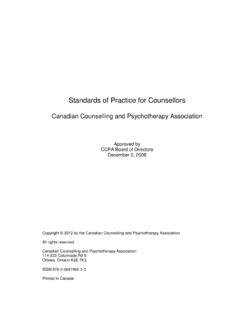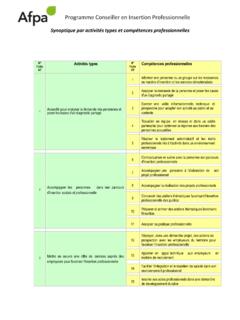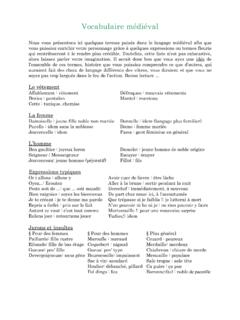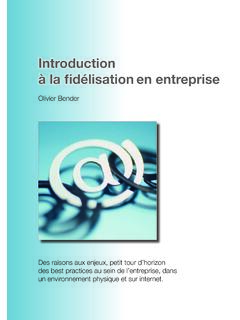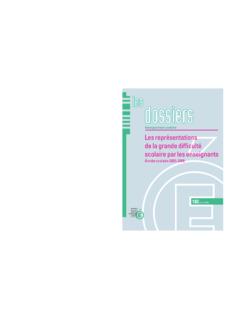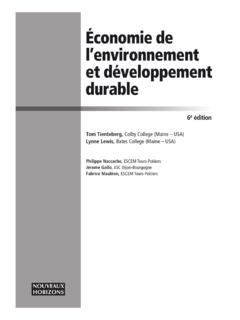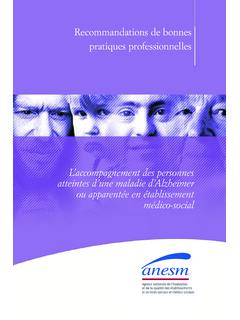Transcription of Standards of Practice - Canadian Counselling and ...
1 Standards of Practice iCanadian Counselling and Psychotherapy Association_____Standards of Practice5th Edition_____Approved byCCPA Board of DirectorsApril 2015ii Standards of PracticeCopyright 2015 by the Canadian Counselling and Psychotherapy AssociationAll rights Counselling and Psychotherapy Association 6-203 Colonnade Rd S Ottawa, Ontario K2E 7K3 ISBN 978-0-9697966-8-8 Printed in CanadaStandardS of Practice iiiCanadian Counselling and Psychotherapy Association_____Standards of Practice_____The Standards of Practice (2015) was revised from the 2008 edition and updated by a CCPA Committee. CCPA would like to acknowledge the original authors of the 2002 version of CCPA s Code of Ethics: Glenn W. Sheppard, William E. Schulz, and Sylvia-Anne McMahon. This document would not be possible without the collaboration, consultation, and review processes undertaken by the following individuals and groups: Dr.
2 Cristelle Audet, Chairperson, CCPA Ethics Committee Queries Division Dr. Ron Lehr, President Emeritus, CCPA Dr. Lorna Martin, Past President, CCPA Dr. Simon Nuttgens, Chairperson, CCPA Ethics Committee Complaints Division Dr. William Schulz, Professor Emeritus, University of Manitoba Dr. Blythe Shepard, President, CCPA Dr. Glenn Sheppard, Ethics Amicus, CCPA, President Emeritus CCPA CCPA Ethics Committee Contributing authors to Canadian Counselling and Psychotherapy Experience: Ethics-Based Issues and Cases (2014) CCPA Board of Directors 2013-2015 Standards of Practice vAcknowledgementsThe following documents were consulted in the process of updating the CCPA Standards of Practice :American Association for Marriage and Family Therapy (2001). AAMFT code of ethics. Retrieved from Counseling Association. (2014). ACA code of ethics. Author: Alexandria, Psychological Association.
3 (2010). Ethical principles of psychologists and code of conduct. Washington, DC: Author. Retrieved from Psychological Society. (2004). Guidelines for psychological Practice in rural and remote settings. Melbourne, AU: Author. British Association for Counsellors and Psychotherapists. (2003). Guidelines for online Counselling and psychotherapy. British Association for Counselling and Association for Music Therapy (1999). Code of ethics. Wilfred Laurier University: Waterloo, Association for Spiritual Care (2013). CASP/ACSS. Code of ethics for spiritual care professionals Retrieved from Canadian Institutes of Health Research, Natural Sciences and Engineering Research Council of Canada, and Social Sciences and Humanities Research Council of Canada. (2010). Tri-Council policy statement: Ethical conduct for research involving humans. Ottawa, ON: Authors. Retrieved from Canadian Psychological Association.
4 (2000). Canadian code of ethics for psychologists 3rd edition. Retrieved from Canadian Council for Career Development. (2010). Canadian Standards and guidelines for career development practitioners: Code of ethics. Retrieved from Ontario Art Therapy Association. (2003). May 2003 OATA Standards of Practice and conduct. Retrieved from College of Social Workers. (2011). Code of ethics and Standards of Practice handbook. Retrieved from Standards of PracticeL Ordre des conseillers et conseill res d orientation du Qu bec. (2010). Code de d ontologie. Retrieved from National Board for Certified Counselors, Inc. and Center for Credentialing and Education, Inc. (2001). The Practice of internet Counselling . Retrieved from The Counselors for Social Justice (CSJ). Code of ethics. (2011). Journal for social action in counseling and psychology, 3(2), 1-21. Retrieved from Zealand Association of Counsellors/Te Roopu Kaiwhiriwhiri o Aotearoa (2002/2012).
5 Code of ethics. A framework for ethical Practice . Retrieved from Standards of Practice viiStandards of Practice ..iStandards of Practice ..iiiAcknowledgements ..vPreamble ..ixA. Professional Responsibility ..1 General Responsibility ..1 Respect for Rights ..2 Boundaries of Competence ..3 Professional and Consultation ..4 Representation of Professional Qualifications ..5 Responsibility to Counsellors and Other Professionals Related to Unethical Behaviour ..6 Responsibility to Clients ..7 Sexual Harassment ..8 Sensitivity to Diversity ..8 Extension of Ethical Responsibilities ..9B. Counselling Relationships ..10 Primary Responsibility ..10 Confidentiality ..10 Children and Confidentiality ..12 Duty to Warn ..14 Informed Consent ..15 Touch in Counselling ..17 Children and Persons with Diminished Capacity ..18 Maintenance of Records ..19 Access to Records ..23 Dual and Multiple Diversity.
6 26 Consulting with Other Professionals ..28 Relationships with Former Clients ..28 Sexual Intimacies with Clients ..29 Multiple Clients: Couple, Family and Group Counselling ..31 Multiple Helpers ..32 Group Work ..33 Computer Use and Other Electronic Technologies ..34 Services using Distance Delivery, Social Media, and Electronic Technologies ..35 Referrals ..37 Termination of Counselling ..38C. Consulting and Private Practice ..39 General Responsibility ..39 Undiminished Responsibility and Liability Incorporation ..40 Accurate Advertising ..40 Consultative Relationships ..42 Informed Consent ..42 Respect for Privacy ..43 Conflict of Interest ..44 Sponsorship and Recruitment ..44 Private Practice Records ..45 Services at the Request of Third and Billing Arrangements ..45D. Evaluation and Assessment ..47 General Orientation ..47 Evaluation and Assessment Competence ..48 Administrative and Supervisory Conditions.
7 49 Use of Technology in Assessment and Evaluation ..50 Appropriateness of Evaluation and Assessment ..51 Sensitivity to Diversity When Assessing and Evaluating ..52 Reporting Evaluation and Assessment Results ..53 Release of Evaluation and Assessment Data ..53 Integrity of Evaluation and Assessment Instruments ..54 Table of Contentsviii Standards of PracticeE. Research and Publications ..56 Researcher Responsibility ..56 Subject Welfare ..58 Informed Consent and Recruitment of Research Participants ..59 Voluntary Participation ..59 Research and Counsellor Education ..60 Research and Confidentiality ..61 Use of Confidential Information for Didactic or Other Purposes ..62 Further Research ..63 Research Sponsors ..63 Reviewers ..64 Reporting Results ..64 Research Contributions ..65 Submission for Publication ..66F. Clinical Supervision, Counsellor Education and Training.
8 67 General Responsibility ..67 Boundaries of Competence ..69 Ethical Orientation ..70 Clarification of Roles and of Clients ..73 Program Orientation ..74 Relational Boundaries ..75 Obligation to Inform ..77 Self-Development and Self-Awareness ..78 Dealing with Personal Issues ..78 Self-Growth Activities ..79G. Guidelines for Dealing with Subpoenas and Court Orders ..81H. Guidelines for the Conduct of Custody Evaluations ..83 References ..85 Standards of Practice ixPreamble These Standards of Practice were developed by the Canadian Counselling and Psychotherapy Association to provide direction and guidelines to enable its members, and other counsellors and psychotherapists in Canada1, and counsel-lors-in-training, to conduct themselves in a professional manner consistent with the CCPA Code of Ethics. They are also intended to serve the following purposes: To support statutory and professional self-regulation by establishing a shared set of expectations related to the many areas of Counselling -related activities and responsibilities; To protect the public by establishing a set of expectations for quality Counselling services and for the maintenance of counsellor accountability; To establish a set of expectations for ethically competent professional behaviour which counsellors may use to monitor, evaluate, and work to improve their professional practices ; To serve as the foundation for addressing professional queries and ethics-related complaints, and To establish expectations for counsellor education, supervision, and to provide support for ongoing professional Standards of Practice are directed primarily at the professional conduct of counsellors.
9 However, they extend to the personal actions of counsellors when they undermine society s trust and confidence in the integrity of the profession and when there is reasonable doubt about the ability or a counsellor to act in a professionally competent and ethical Standards of Practice , there are text boxes inserted to succinctly capture some core ethical concept, an ethical principle, or concept from case law, and so forth. These insertions are intended to reflect some of the richness and diversity of the historical and contemporary strivings that constitute the ethical and legal grounding for our professional code of of the Standards of Practice are pinned to the generic entry-to- Practice level as determined by the nationally validated competency profile for the counsel-ling profession in Canada. Because the Standards of Practice are generic in nature, they do not anticipate every Practice situation, modality of Practice , or address all of the ethical challenges with which counsellors are confronted.
10 Therefore, the development of Standards will necessarily remain an ongoing responsibility to which all counsellors can contribute. Despite the value of these Standards of Practice , the ultimate responsibility for acting ethically depends on the integrity and commitment of each counsellor to do Throughout this publication, the term counsellor shall refer to various titles used by practitioners involved in the activity of Counselling including, but not restricted to, the terms psychotherapist, Counselling therapist, mental health therapist, clinical counsellor, career counsellor, conseiller /conseill re d'orientation, vocational guidance counsellor, marriage and family therapist, orienteur, orienteur professionnel, of Practice 1 CODE OF ETHICSA1 General ResponsibilityCounsellors maintain high Standards of professional competence and ethical behaviour, and recognize the need for continuing education and personal care in order to meet this responsibility.


